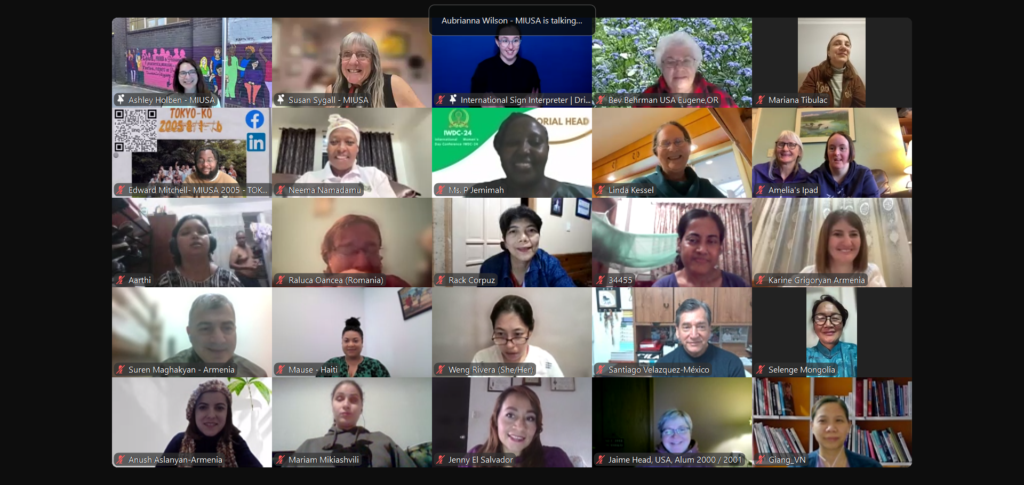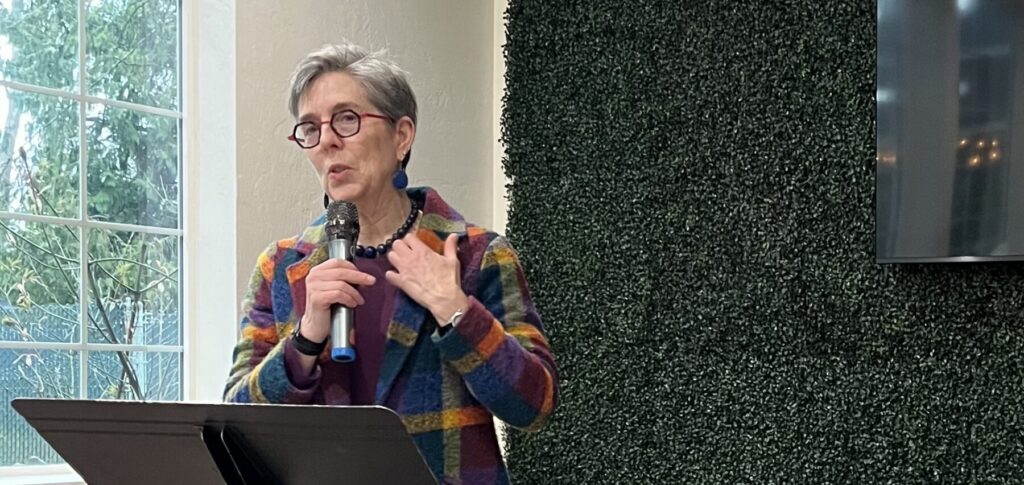When international educators discuss increasing the numbers of people participating globally, the focus is on “What will convince them to travel abroad?” or “What barriers can we remove that are in the way?”
Maybe the international field would reach new people by understanding “What pushes the growing numbers to choose to study abroad?”
In addition to the draw of new places, cross-cultural connections, resume-building, or getting the support of family or funds – international educators all have come across education abroad participants that are going abroad because they need to get away – to leave behind a situation they have at home. And study abroad or volunteer abroad is the way to do it.
More and more people with disabilities are studying abroad each year. Among those I have interviewed, especially those with non-apparent disabilities – anorexia, depression, lupus, non-verbal learning disabilities, social anxiety – but also those with other disabilities, are linked closely to family in ways that are not always making them healthy (unintentionally or not). This can include co-dependency, non-acceptance of changes, overbearing or critical attitudes, or feelings of unworthiness.
For some people with disabilities, going abroad is pivotal in their healing or development by nurturing their new identities and in raising their own expectations.
For some international educators, the first reaction to the “escaping abroad” motivation among participants is often “study or volunteer abroad programs are not set up as a haven for people who want to get away from, or work through, their problems.” The logic follows that international travel is too stressful1 and will compound issues that won’t magically disappear with a change of location – legitimate concerns, generally. But what if what one finds abroad is just the prescription they need for renewal?
All the talk about “how life-changing these experiences are” need not disappear as soon as someone reveals they are struggling with social, mental, or health related issues.
As more people with these types of disabilities study abroad, international educators instead of saying “study abroad is not for you or at least not right now” must begin asking “how are our programs meeting your needs?” What if going abroad will give someone a new perspective or push to finally deal with personal challenges and find strategies that will make that person stronger?
The day-to-day necessity of having to figure out how to navigate a new culture, city, or food, as one person with a mental health disability, who was coming from an unstable home life, said was “Just Do It” therapy for her. Time abroad gave her reprieve to think about something else if only for the semester in Italy; even if it did not resolve what she returned home to afterward. For another person with arthritis, leaving the U.S. to go abroad meant finally recognizing she needed to pay attention to exercise, diet, and sleep –important to those living with chronic health disabilities.
Some people with and without disabilities may go overseas with an explicit goal of solving issues lingering back at home while others only discovered personal growth and new habits in retrospect.
Promoting the message that education abroad programs can be a way to alleviate the burden of pressures, dissatisfaction, or stagnation at home is a hard step for the international exchange field to take. However, the foundation for that step exists.
All the crisis management skills and resources being developed to prevent or deal with unwanted circumstances on programs abroad, on the flipside have also positioned the field to be ready to guide participants in personal transformation.
International educators are already promoting going abroad as life-changing and confidence building experiences. Just as intercultural growth doesn’t happen without intervention in the participant’s learning while culturally immersed – international educators need to recognize more consciously that fostering personal development is part of the field’s purpose too.
And building capacity in this area may be just what will attract and support more to go abroad.
1 Stress among those with mental health diagnosis or treatment prior to going abroad is high before going abroad (28.71%), drops during the experience (12.23%), and although stress levels rise slightly on return home (21.04%), they didn’t reach prior stress levels (see full PDF of Amber Bathke & Ryoka Kim article in Frontiers Journal Spring 2016).
Sign up for our E-News






Manage Your Privacy